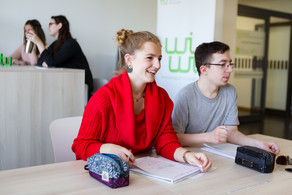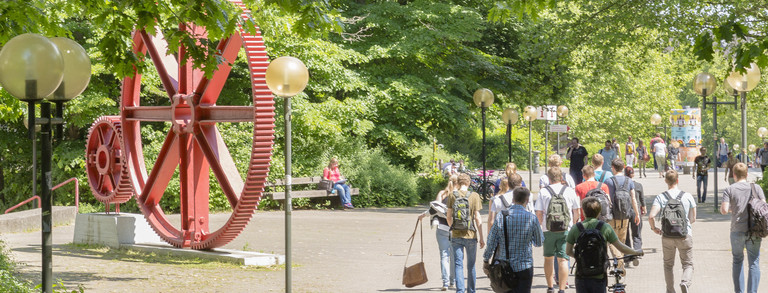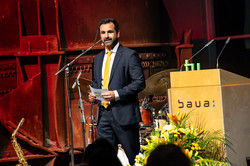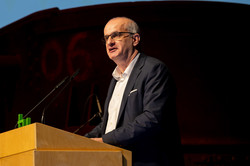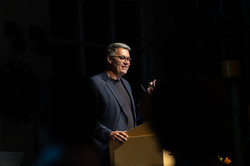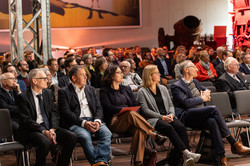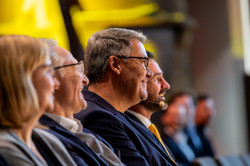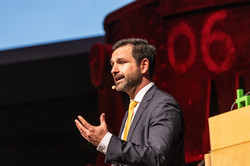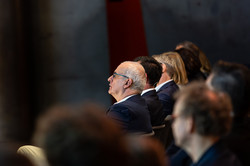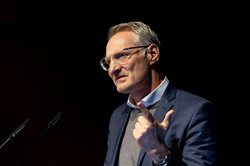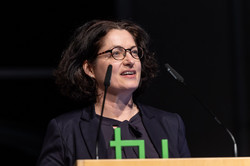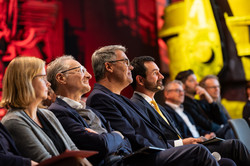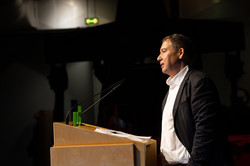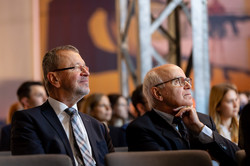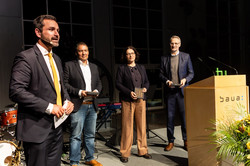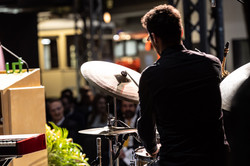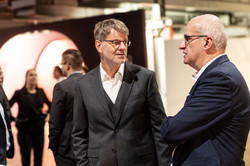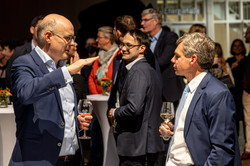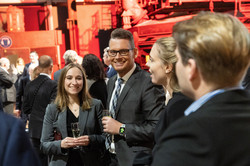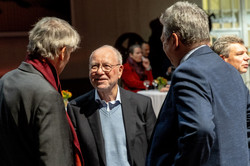Five Decades of Business and Economics at TU Dortmund University
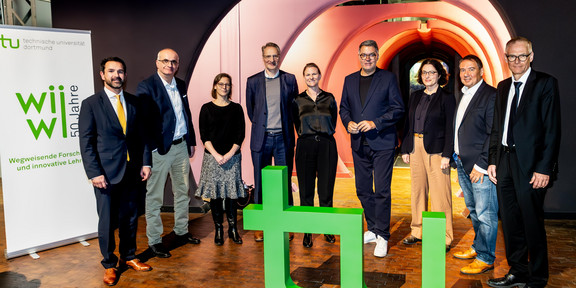
The ceremony was opened with a welcoming address by Ina Brandes, Minister for Culture and Science of the State of North Rhine-Westphalia. Ms. Brandes congratulated the department in a video message and emphasized the significant importance of research in academia for solving current social challenges and the importance of transfer of knowledge from universities to society.
This was followed by words of welcome from Professor Dr. Manfred Bayer, Rector of TU Dortmund University, and Mr. Thomas Westphal, Lord Mayor of the City of Dortmund. Professor Bayer emphasized the relevance of economic knowledge across departmental boundaries and thanked the department for the excellent way in which it covers this area at TU Dortmund University. In his welcoming address, the Lord Mayor referred to the many areas in which the city of Dortmund has benefited from its close cooperation with department members and how these collaborations have helped shape the Dortmund of today.
The evening was hosted by the Dean of the department, Professor Dr. Steffen Strese. He took the guests back to the beginnings of the department, founded in 1973 as the 11th department at the young, technically oriented University of Dortmund. With only 54 students, it began teaching as the Department of Business, Economics and Social Sciences and now offers the second-largest Bachelor's degree program at the university. The three disciplines of business, economics and sociology worked together symbiotically and formed a strong foundation for today's department, which has been successfully operating as the Department of Business and Economics since 2017. In addition to its expertise in the traditional areas of business studies and economics, it is characterized in particular by its success in the research clusters of empirical economic research as well as entrepreneurship, technology/innovation management and digital transformation.
Looking to the future, Professor Strese outlined how the department intends to build on its successes to date. This includes further strengthening the promotion of young academics, expanding regional, national and international partnerships, strengthening the promotion of entrepreneurship and start-ups from the university and developing the new Business Informatics course.
Special thanks go to the three keynote speakers of the evening. As alumni of the department, they represent three different areas that are of great importance to the department - business, science and entrepreneurship.
Dr. Ulrich Hüllmann, CFO of the Viessmann Group, reported on the influence of current social developments on his company. He emphasized the important role that universities play in imparting not only curiosity and knowledge, but also the ability to use this knowledge in an optimistic and meaningful way to change the world for the better.
In her speech, Professor Dr. Kerstin Schneider from the Chair of Public Finance and Business Taxation at the University of Wuppertal and Director of the Wuppertal Research Institute for the Economics of Education addressed the central importance of access to research data not only for young academics, but also for the competitiveness of Germany's research community and for evidence-based economic and social policy. She was critical of the lack of microeconomic and consumption-based data on the one hand, but also of access to and the infrastructure of the data on the other. For the future, she wished the department and the research community in Germany as a whole an improved quality and accessibility of research data.
The area of entrepreneurship was represented by Mr. Christian Winter, partner and investor at the venture capital firm Cusp Capital. In his speech, Mr Winter addressed current topics with high relevance for the future - such as sustainability, transformation and evolution of business areas and digitalization as the foundation of change. He welcomed the great importance of entrepreneurship and entrepreneurship in teaching at the department, as well as the active promotion of start-ups. For the future of the department, he would like to see the further development of this support and the strengthening of student entrepreneurship.
Following the welcoming and ceremonial addresses, department members and alumni celebrated the half century mark reached by the department together with guests and sponsors. Building on the successes of the past, the department is looking forward to the next 50 years by deepening existing networks and building new ones, as well as through continuous internationalization and digitalization.






